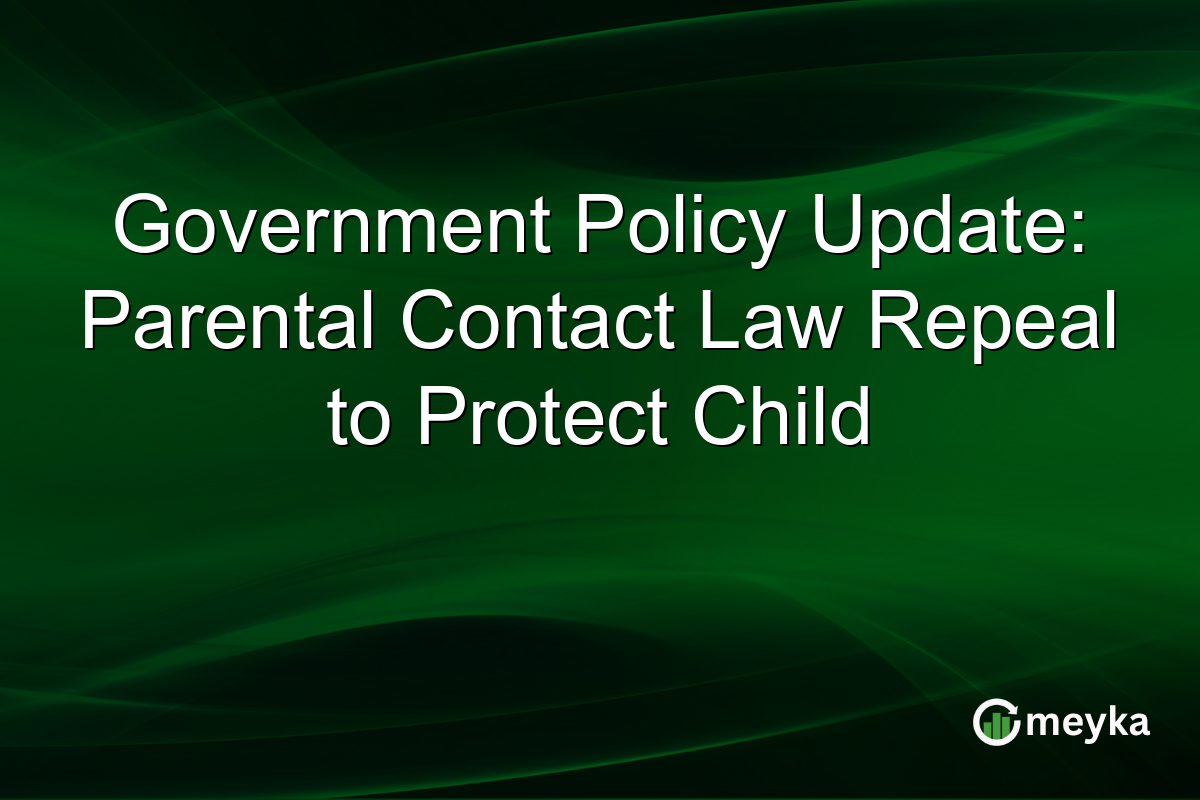Government Policy Update: Parental Contact Law Repeal to Protect Child
The UK government recently announced the repeal of the presumption of parental contact in the Children Act 1989. This decision follows a dedicated campaign spearheaded by Claire Throssell. The repeal aims to enhance child protection, allowing courts to restrict contact with abusive parents more effectively. This legislative change represents a significant shift in family law, prioritizing child safety over automatic parental rights.
The Repeal of Parental Contact Presumption
In a landmark decision, the UK has repealed the presumption that children must maintain contact with both parents following a divorce. This change directly affects the Children Act 1989, reflecting broader efforts to prioritize child safety, especially in cases involving domestic abuse prevention. The new legal framework allows judges to make more informed decisions without starting from a presumption of contact.
The impetus for this legislative adjustment comes from tragic real-life events, notably highlighted by Claire Throssell’s campaign. Her two sons were tragically killed by their father during a mandated visit. The story, covered extensively across media platforms, galvanized public opinion and political action. itv.com/news.
Impact on Family Law and Child Protection
This legislative change signifies a pivotal shift in family law. By removing the automatic presumption of contact, the law empowers the courts to robustly assess each parent’s suitability. This approach is crucial in cases with a history of domestic violence.
According to reports, this change may prevent further tragedies similar to those that motivated Claire Throssell. Statistics reveal that children involved in high-conflict custody battles face increased risks. The law’s reversal addresses this concern, aligning legal outcomes with current understandings of domestic abuse prevention.
Claire Throssell’s Campaign: A Catalyst for Change
The role of Claire Throssell in advocating for this change cannot be overstated. Her relentless campaigning brought attention to the potential dangers of forced parental contact. By sharing her devastating personal experience, she highlighted flaws in the existing legal assumptions.
Supported by various child protection advocates, Throssell’s work underscores how individual advocacy can drive systemic change. Her influence has resonated not only with legislators but also with the public, leading to widespread support for the barriers. bbc.com/news
Final Thoughts
Looking at the broader impact of repealing the presumption of parental contact, it’s clear that child safety now stands at the forefront of family law. This change ensures that contact decisions will prioritize the child’s well-being, particularly where domestic abuse is a concern. Claire Throssell’s campaign exemplifies how individual stories can lead to substantial legislative reform. Families and legal professionals must now navigate this adjusted landscape, aiming to strike the right balance between parental involvement and child safety.
FAQs
The parental contact presumption in the UK ensured children maintain contact with both parents post-divorce. The recent repeal eliminates this automatic assumption, focusing instead on child safety.
The Children Act 1989 was changed to prioritize child protection. Influenced by Claire Throssell’s campaign, the repeal allows courts to restrict access to abusive parents, enhancing safety.
The change aids in domestic abuse prevention by removing the automatic contact presumption. Courts now have more discretion to deny contact when a parent’s history indicates potential harm to the child.
Disclaimer:
This is for information only, not financial advice. Always do your research.






